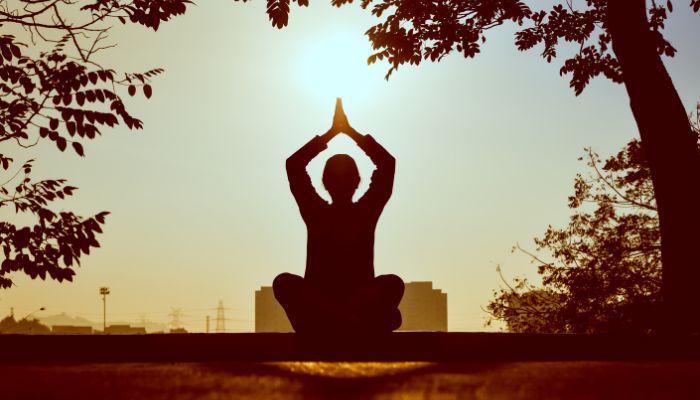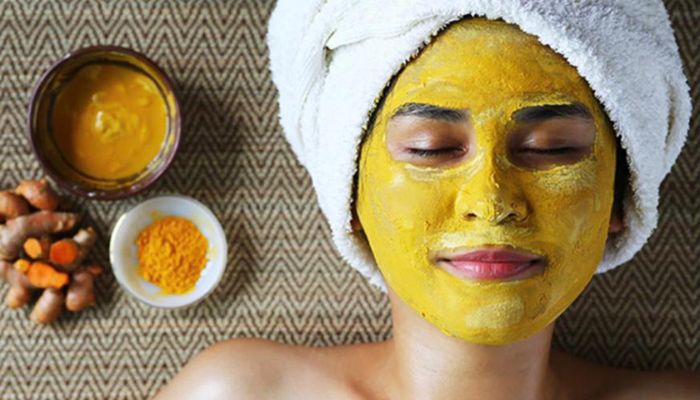Ayurveda, the ancient Indian system of medicine, offers a holistic approach to health and wellbeing. With its emphasis on balance and harmony, Ayurveda provides valuable insights and practices that can enhance our physical, mental, and emotional health. Let’s explore WellHealth Ayurvedic health tips to help you thrive in 2024 and beyond.
What is Ayurveda?
Ayurveda, which translates to “the science of life,” is a 5,000-year-old healing system that originated in India. It views health as a state of balance between the body, mind, and spirit, and aims to promote longevity and vitality through natural remedies and lifestyle practices.
Principles of Ayurveda
At the core of Ayurveda are three fundamental energies known as doshas: Vata, Pitta, and Kapha. These doshas govern various physiological and psychological functions in the body, and imbalances can lead to disease and discomfort. Ayurveda seeks to restore balance through diet, lifestyle, herbs, and therapies.
Understanding WellHealth Ayurvedic Health Tips
What is WellHealth?
WellHealth is a holistic wellness approach that integrates Ayurvedic principles into modern lifestyles. It emphasizes preventive care, self-awareness, and personalized health strategies to optimize overall wellbeing.
Incorporating Ayurvedic principles into daily life
By understanding your unique constitution and imbalances, you can tailor Ayurvedic practices to suit your individual needs. WellHealth encourages mindfulness, self-care, and conscious living to promote health and happiness.
Importance of diet in Ayurveda
Ayurveda emphasizes the importance of food as medicine. A well-balanced diet consisting of fresh, seasonal foods can nourish the body and support optimal health. WellHealth recommends whole grains, fresh fruits and vegetables, lean proteins, and healthy fats.
Recommended foods for WellHealth
Incorporate Ayurvedic superfoods such as turmeric, ginger, and leafy greens into your diet for their antioxidant and anti-inflammatory properties. Favor warm, cooked meals over cold or processed foods to support digestion and vitality.
Ayurvedic cooking techniques
Cooking methods such as steaming, boiling, and sautéing are preferred in Ayurveda as they retain the natural flavors and nutrients of foods. Use spices and herbs liberally to enhance taste and promote digestion.
Lifestyle Practices
Daily routines for WellHealth
Establishing a daily routine, or dinacharya, is essential for maintaining balance and harmony in Ayurveda. Wake up early, practice self-care rituals, and prioritize activities that nourish your body and mind.
Stress management techniques
Stress is a common factor in modern life and can disrupt our natural equilibrium. WellHealth encourages stress-reducing practices such as yoga, meditation, and deep breathing to promote relaxation and resilience.
Herbal Remedies
Common herbs and their benefits
Ayurveda boasts a vast pharmacopeia of herbs and botanicals prized for their therapeutic properties. Herbs like ashwagandha, tulsi, and Triphala can support immune function, reduce inflammation, and enhance vitality.
How to incorporate herbs into your routine
Herbal supplements, teas, and tinctures are convenient ways to incorporate Ayurvedic herbs into your daily regimen. Consult with a qualified Ayurvedic practitioner to determine the best herbs for your individual needs.
Yoga and Exercise
Role of Yoga in Ayurveda
Yoga is an integral component of Ayurveda, offering a holistic approach to physical and mental fitness. Regular yoga practice can improve flexibility, strength, and balance while promoting inner peace and harmony.
Recommended yoga poses for WellHealth
Practice yoga asanas that correspond to your dosha type to restore balance and vitality. Sun salutations, forward bends, and spinal twists are beneficial for all doshas, promoting detoxification and rejuvenation.

Certainly! Here are some recommended yoga poses for WellHealth:
1. Tadasana (Mountain Pose):
Stand tall with your feet hip-width apart, arms relaxed by your sides. Root down through your feet and reach your arms overhead, lengthening through your spine. This pose promotes alignment, stability, and mental focus.
2. Vrikshasana (Tree Pose):
Start in Tadasana, then shift your weight onto your left foot. Place your right foot on the inner thigh or calf of your left leg, avoiding the knee joint. Press your palms together at your heart center and find a focal point to enhance balance and concentration.
3. Adho Mukha Svanasana (Downward-Facing Dog Pose):
Begin on your hands and knees, then lift your hips up and back, straightening your arms and legs to form an inverted V shape. Press your palms into the ground, lengthen your spine, and engage your core muscles. This pose stretches the entire body, relieves tension, and energizes the mind.
4. Bhujangasana (Cobra Pose):
Lie on your stomach with your hands under your shoulders and elbows close to your body. Inhale as you lift your chest off the ground, keeping your elbows slightly bent. Lengthen through the crown of your head and draw your shoulder blades down and back. The cobra pose strengthens the back muscles, opens the chest, and improves spinal flexibility.
5. Balasana (Child’s Pose):
Kneel on the mat with your big toes touching and knees apart. Sit back on your heels and fold forward, resting your forehead on the ground and extending your arms out in front of you or alongside your body. This gentle stretch releases tension in the back, shoulders, and hips, promoting relaxation and inner calm.
6. Savasana (Corpse Pose):
Lie on your back with your legs extended and arms by your sides, palms facing up. Close your eyes and relax your entire body, allowing your breath to become natural and effortless. Savasana is a pose of deep relaxation and integration, promoting physical and mental rejuvenation.
Sleep Hygiene
Importance of sleep in Ayurveda
Quality sleep is essential for overall health and well-being according to Ayurveda. Adequate rest allows the body to repair and regenerate, supporting immune function, cognitive function, and emotional resilience.
Tips for improving sleep quality
Establish a consistent sleep schedule, create a relaxing bedtime routine, and optimize your sleep environment for comfort and tranquility. Avoid stimulating activities and electronic devices before bedtime to promote restful sleep.
Certainly! Here are some tips for improving sleep quality in Ayurveda for WellHealth:
1. Follow a consistent sleep schedule:
Aim to go to bed and wake up at the same time every day, even on weekends. Consistency helps regulate your body’s internal clock, promoting better sleep quality and overall well-being.
2. Create a relaxing bedtime routine:
Establish a calming bedtime routine to signal to your body that it’s time to wind down. This may include activities such as reading, taking a warm bath, practicing gentle yoga or meditation, or listening to soothing music.
3. Optimize your sleep environment:
Make your bedroom a conducive environment for sleep by keeping it cool, dark, and quiet. Invest in a comfortable mattress and pillows, and consider using blackout curtains, white noise machines, or earplugs to minimize disruptions.
4. Limit exposure to screens before bedtime:
The blue light emitted by screens can interfere with your body’s natural sleep-wake cycle. Avoid using electronic devices such as smartphones, tablets, and computers at least an hour before bedtime, and opt for relaxing activities instead.
5. Practice relaxation techniques:
Incorporate relaxation techniques such as deep breathing, progressive muscle relaxation, or guided imagery to calm the mind and body before sleep. These practices can help reduce stress and promote a sense of inner peace conducive to sleep.
6. Avoid heavy meals and stimulants before bedtime:
Avoid consuming heavy meals, caffeine, nicotine, and alcohol close to bedtime, as they can disrupt sleep patterns and interfere with the quality of your rest. Opt for light, easily digestible snacks if you’re hungry before bed.
7. Use herbal remedies:
Ayurveda offers various herbs and botanicals known for their calming and sleep-promoting properties. Consider incorporating herbs such as ashwagandha, Brahmi, or chamomile into your evening routine in the form of teas, tinctures, or supplements.
8. Practice Abhyanga (Ayurvedic self-massage):
Perform a gentle self-massage with warm oil before bedtime to relax the body and calm the mind. Use soothing oils such as sesame or coconut oil and massage your body in long, sweeping strokes, paying attention to areas of tension.
9. Engage in calming activities:
Engage in calming activities such as journaling, gentle stretching, or restorative yoga poses to unwind and release tension from the body. These activities can help quiet the mind and prepare you for a restful night’s sleep.
10. Seek professional guidance if needed:
If you continue to experience difficulty sleeping despite trying these Ayurvedic tips, consider seeking guidance from a qualified Ayurvedic practitioner or healthcare provider. They can offer personalized recommendations and support to address any underlying imbalances affecting your sleep.
Mindfulness and Meditation
Mindfulness and meditation practices cultivate present-moment awareness and inner peace. Regular meditation can reduce stress, anxiety, and depression while promoting mental clarity and emotional balance.
1. Simple practices for beginners
Start with short meditation sessions focusing on your breath or a simple mantra. Gradually increase the duration and explore different meditation techniques to find what resonates with you.
2. Maintaining Balance
Ayurveda recognizes that imbalances in the doshas can manifest as physical, mental, or emotional symptoms. By identifying your unique constitution and imbalances, you can make informed choices to restore equilibrium.
3. Tips for balancing the body and mind
Follow a dosha-balancing diet and lifestyle routine, engage in regular exercise and relaxation practices, and seek the guidance of an Ayurvedic practitioner for personalized recommendations.
Ayurveda for Mental Health
Holistic approaches to mental well-being
Ayurveda offers holistic strategies for supporting mental health and emotional balance. Cultivate healthy habits, seek support when needed, and prioritize activities that nourish your mind and spirit.
Techniques for managing anxiety and depression
Practice mindfulness, engage in creative expression, and cultivate a supportive network of friends and family. Explore Ayurvedic therapies such as herbal remedies, aromatherapy, and sound healing to alleviate symptoms and promote emotional resilience.
Natural Remedies and DIY Skincare for Healthy Skin
Ayurveda advocates for a holistic approach to skincare that addresses the underlying causes of skin imbalances. Incorporate gentle cleansers, nourishing oils, and herbal face masks into your skincare routine for a radiant complexion.

Create your own Ayurvedic skincare products using simple ingredients like coconut oil, turmeric, and rose water. Experiment with Ayurvedic beauty rituals such as oil cleansing, facial steaming, and lymphatic massage for glowing skin. Here are DIY skincare routines inspired by Ayurveda for achieving glowing skin:
1. Ubtan (Herbal Face Mask):
• Mix together equal parts of chickpea flour (besan), turmeric powder, and sandalwood powder in a bowl.
• Add a tablespoon of raw honey and enough rose water to form a smooth paste.
• Apply the ubtan evenly to clean, damp skin and leave it on for 15-20 minutes.
• Rinse off with lukewarm water, gently scrubbing in circular motions to exfoliate the skin.
• Ubtan helps remove dead skin cells, brighten the complexion, and promote a healthy glow.
2. Rose Water Toner:
• Pour organic rose water into a clean spray bottle or cotton pad.
• Spritz or apply the rose water toner onto cleansed skin, focusing on areas prone to dryness or irritation.
• Allow the toner to air dry or gently pat it into the skin with clean hands.
• Rose water helps hydrate, soothe, and tone the skin while balancing its pH levels for a radiant complexion.
3. Coconut Oil Cleansing:
• Warm a small amount of organic virgin coconut oil between your palms until it melts into a liquid.
• Massage the coconut oil onto dry skin in circular motions, focusing on areas with makeup or sunscreen.
• Use a warm, damp washcloth to gently wipe away the oil and impurities from the skin.
• Coconut oil effectively cleanses the skin without stripping its natural oils, leaving it soft, supple, and radiant.
4. Aloe Vera Gel Moisturizer:
• Scoop out fresh aloe vera gel from a leaf and transfer it into a clean container.
• Apply the aloe vera gel onto clean, dry skin as a lightweight moisturizer.
• Allow the gel to absorb fully into the skin before applying sunscreen or makeup.
• Aloe vera gel hydrates, soothes, and nourishes the skin, promoting a healthy glow and reducing inflammation.
5. Ayurvedic Facial Massage:
• Warm a small amount of organic sesame oil or almond oil in your palms.
• Gently massage the oil onto clean, dry skin using upward circular motions, starting from the neck and moving upwards towards the forehead.
• Focus on acupressure points such as the temples, jawline, and cheekbones to stimulate circulation and lymphatic drainage.
• Leave the oil on for 10-15 minutes before rinsing off with lukewarm water or wiping away excess oil with a warm, damp washcloth.
• Regular facial massage improves circulation, enhances skin tone, and imparts a healthy radiance to the skin.
Incorporating Ayurveda into Modern Life
Practical tips for busy lifestyles
Ayurveda is adaptable to modern life, offering practical strategies for staying healthy amidst the demands of work, family, and social obligations. Prioritize self-care, simplify your routine, and delegate tasks when necessary to maintain balance and vitality.
Creating balance in a fast-paced world
Find moments of stillness and solitude amidst the busyness of daily life. Incorporate mindfulness practices into your routine, connect with nature, and cultivate gratitude for the simple joys that nourish your soul.
Conclusion
Incorporating WellHealth Ayurvedic health tips into your daily life can transform your well-being and vitality. By embracing Ayurvedic principles of balance, harmony, and self-awareness, you can cultivate a deeper connection to yourself and the world around you, leading to greater health, happiness, and fulfillment.
FAQs
1. Is Ayurveda suitable for everyone?
A. Ayurveda is a holistic system of medicine that can benefit people of all ages and constitutions. However, it’s essential to consult with a qualified practitioner to receive personalized recommendations.
2. Can I practice Ayurveda alongside conventional medicine?
A. Ayurveda can complement conventional medical treatments, but it’s essential to communicate with your healthcare provider and Ayurvedic practitioner to ensure compatibility and safety.
3. How long does it take to see results with Ayurvedic practices?
A. Results may vary depending on individual factors such as constitution, imbalances, and adherence to Ayurvedic principles. Consistency and patience are key to experiencing lasting benefits.
4. Are Ayurvedic herbs safe to use?
A. When used appropriately and under the guidance of a qualified practitioner, Ayurvedic herbs are generally safe and well-tolerated. It’s important to follow recommended dosages and precautions.
Can Ayurveda help with specific health conditions?
A. Ayurveda offers holistic approaches to a wide range of health conditions, including digestive issues, stress-related disorders, skin problems, and more. Consult with an Ayurvedic practitioner for personalized recommendations tailored to your needs.
